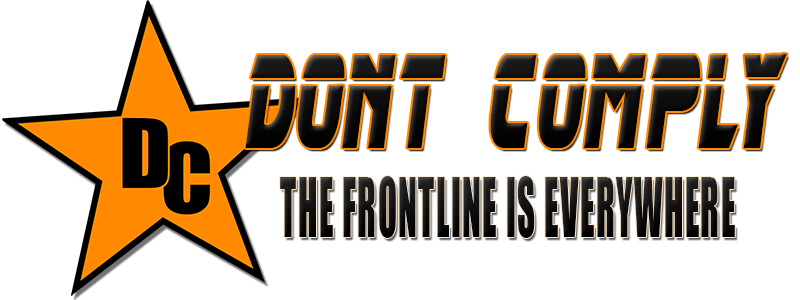At a time when the entirety of Western civilization is focused on eliminating police corruption and ending the suffering that unlawful police departments inflict upon citizens, a Texas State Representative, Jason Villalba (R-Dallas), is ramping up his crusade against civil liberties, seeking to diminish public oversight of police action.
This month, Representative Villalba introduced a bill that would prohibit:
- filming, recording, photographing, or documenting
the officer within 25 feet of the officer; or
- filming, recording, photographing, or documenting
the officer within 100 feet of the officer while carrying a handgun
thereby criminalizing basic rights enumerated in the first and second amendments to the US Constitution.
Villalba, a Republican, has included language in the bill that provides an exception for government-defined “members of the press”, mimicking the failed attempt by California Democrat Diane Feinstein to curtail free speech with her amendment to the 2013 Free Flow of Information Act.
Activists within the Texas Liberty Movement indicate that Viallba’s bill will be opposed in the House although no legislators have gone on record to confirm this yet.
Critics of the bill say that it is a continuance of a frightening trend in government to criminalize lawful behavior, limit human rights and eliminate citizen oversight.
On Friday, Murdoch Pitzgatti, the President and co-founder of Come and Take It Texas said,

When filming anything in public becomes illegal, the First Amendment has died. Where the First Amendment is restricted, the Second Amendment will be used to remedy the situation
Pitzgatti added, “Under this bill, concealed handgun license holders must stay even further away while filming. We will not follow an unconstitutional law, especially one that singles out law-abiding citizens that have been vetted and have undergone extensive background checks and treats them like criminals.”
The bill stands in marked contrast to the efforts made by Texas citizens, including police and lawmakers, to increase oversight of police actions through the use of body cameras and other measures. Similar initiatives, put forth on the national level, have received nearly universal support in the wake of Ferguson and other highly publicized incidents involving police shootings.

Like Feinstein, Villalba would have the legislature ignore the ways in which technology has enabled journalism to evolve, narrowly defining “journalist” in such a way that would criminalize the work done by many of today’s most powerful and influential members of press.
Sadly, these attempted end-runs around the First Amendment are far from isolated occurrences. Over the past decade a multitude of evidence has surfaced that reveals an increasing animosity towards the press on the part of government, though this animosity has not gone unchecked.
In 2011 the U.S. Court of Appeals for the First Circuit ruled unanimously in favor Simon Glik, who was arrested and charged with illegal wiretapping for making a video recording of police actions in Boston. Sarah Wunsch, a staff attorney for ACLU Massachusetts called the case “…a resounding victory for the First Amendment right to openly record police officers carrying out their duties in a public place,”
The right to a free press is an American principle that predates the founding of the republic. In an Appeal to the Inhabitants of Quebec (1774), the First Continental Congress wrote:
The last right we shall mention regards the freedom of the press. The importance of this consists, besides the advancement of truth, science, morality, and arts in general, in its diffusion of liberal sentiments on the administration of Government, its ready communication of thoughts between subjects, and its consequential promotion of union among them, whereby oppressive officers are shamed or intimidated into more honorable and just modes of conducting affairs.
Fifteen years later, the people’s right to criticize government specifically compelled the Founders to include within the Bill of Rights the statement that “Congress shall make no law … abridging the freedom of speech, or of the press.”

Americans have long cherished the right to a free press and rightfully so. Efforts by those in government to flout this basic premise of our constitutional republic clearly recalls the Nazi’s Reichstag Fire Decree; which, in 1933 made criticism of the government a criminal offense in Germany and paved the way for the terror of national socialism.
But what terrorizes minions of big government, like Jason Villalba, is a free people exercising their natural rights unimpeded by regulation.
Another highly publicized bill filed by Villalba this session, under the guise of protecting religious liberty, would amend the Texas constitution to allow state and local governments to “burden” a person’s free exercise of religion if “the burden is necessary to further a compelling governmental interest…” Villlalba has since folded under the pressure coming from both sides of the issue and withdrawn support for his own bill leaving Representative Matt Krause (R-Fort Worth) to pick up the slack.
Last year in US News & World Report, Jason Stverak wrote,
“The term “public servant” has become the vogue euphemism that career politicians and government employees use for themselves, but it more aptly applies to people working for the common good and the betterment of their community. Journalists fit under this umbrella because they are a check on those in power, and our government should be applauding anyone who puts in the legwork to uncover the truth instead of drawing arbitrary lines to hinder them.”
Take note Villalba, that’s the way real Texans think.





